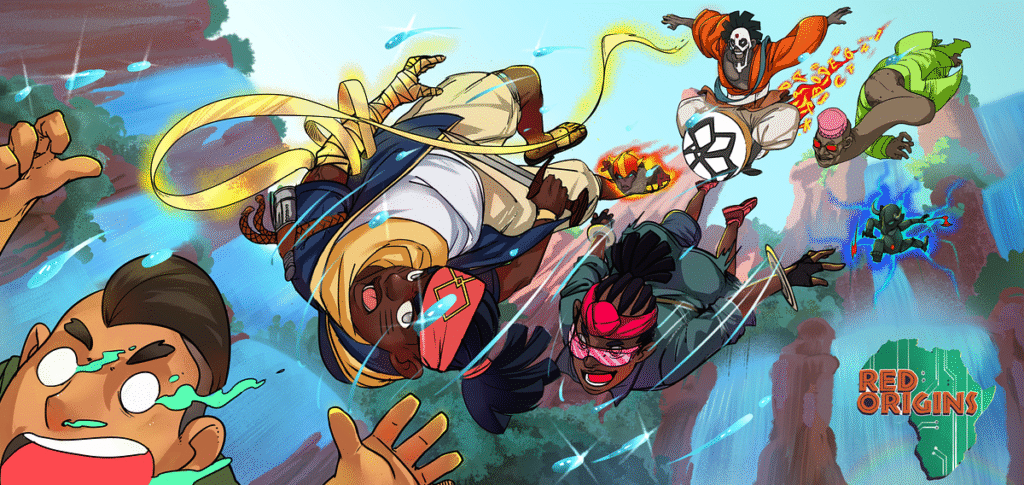“Everyone is streaming Burna Boy and watching Nollywood on Netflix, so why aren’t Nigerian comics getting the same bag?”
The Funding Gap That No One Talks About
If you’ve ever scrolled through Boomplay or Spotify, you’ll see Nigerian musicians topping charts globally. Nollywood, once dismissed for “low budget” films, is now a staple on Netflix.
But Nigerian comic creators? They’re still hustling for survival, chasing unpaid collaborations, and praying that downloads turn into dollars.
The irony? Comics should have it easier. They’re cheaper to produce than films, easier to distribute digitally, and come with endless merchandising potential.
Yet, year after year, creators at Lagos Comic Con or Capital City Comic Con in Abuja keep asking the same question: Where is the funding for us?
Why Musicians and Filmmakers Thrive
The Nigerian music industry exploded because of one word: distribution. Once streaming platforms like Spotify, Apple Music, and Boomplay entered the scene, barriers disappeared.
Artists no longer needed Alaba pirates to push CDs they uploaded directly to global audiences. That shift unlocked investor interest.
Nollywood had its own renaissance. Netflix and Amazon Prime Video came calling, pouring millions into original Nigerian content.
Nollywood creators benefited from existing global demand for “new markets” and fresh African storytelling. A single Netflix movie could change a filmmaker’s career.
These industries built ecosystems: music had promoters, DJs, streaming platforms, and record labels. Nollywood had cinemas, production houses, and finally international streamers. Comics? Still waiting.
Comics: The Orphan of Nigerian Entertainment
Unlike films and songs, comics have no mainstream digital pipeline. There’s no “Comicify Nigeria” app where you pay ₦500/month for unlimited access to local titles.
Some creators like Comic Republic tried free digital downloads to gain audience traction reportedly hitting 25,000 downloads per issue. But free doesn’t pay all the bills or give room for mega expansion.

And unlike Nollywood or Afrobeats, comics don’t yet have that big breakout hit. Iyanu: Child of Wonder created by Roye Okupe and later picked up by HBO Max and Cartoon Network is the rare success story. But even Iyanu only really exploded after being adapted into animation.
Investors Don’t Understand the Market. One of the biggest barriers is perception. Many investors still see comics as “for kids.”
They don’t realize that in Japan, manga drives a $5 billion market, and in the U.S., Marvel and DC built billion-dollar film franchises on comic book IP.
In Nigeria, creators pitch comics and get blank stares. But pitch music or film? Everyone sees dollar signs. That leaves comics relying on personal funds, crowdfunding, or side hustles.
Many creators double as graphic designers, animators, or illustrators for advertising agencies just to survive.
The Argument: Maybe Creators Themselves Are Part of the Problem?
Some critics argue that Nigerian comic creators sometimes play it too safe. Instead of tapping into deep local stories, mythology, folklore, everyday struggles they fall back on superhero templates that feel “Western-lite.”
Investors then ask: Why fund something that looks like a knock-off Spider-Man when we can fund a Nollywood epic or Afrobeats video that screams originality?
Others argue distribution is partly in the hands of the creators. Musicians didn’t wait for the government they hacked SoundCloud, YouTube, and later Spotify.
Nollywood creators built DVD empires before Netflix showed up. Comics, however, haven’t had that breakout grassroots hack yet.
Signs of Change
It’s not all bad news. Creators are experimenting with new models:
Webtoons and mobile-first platforms: Some Nigerian creators are uploading to global apps like Webtoon and Tapas to tap into international audiences.
The local webtoons market is however not catching up as some of the earlier platforms have died due to lack of consistent content. Thie is another feature story on its own.
Merchandising: Studios like Comic Republic are leaning into branded T-shirts, figurines, and posters as revenue streams.
Crossovers with animation: SPOOF Animation and YouNeek Studios are proving that the pathway from comic to animation can unlock funding.
Conventions: Lagos Comic Con and Abuja’s Capital City Comic Con are growing yearly, attracting thousands of fans and potential investors.
And let’s not forget the influence of global hits like Black Panther and Across the Spider-Verse.
They’ve made African aesthetics trendy. Nigerian creators now have a window to prove they’re not just imitators they’re originators.
What Needs to Happen
For comics to thrive like music and film, three big shifts must happen:
- Distribution Platforms: Nigeria needs a “Netflix for comics,” local or global, that makes it easy to pay creators directly.
- Investor Education: Investors must see comics not as “kids’ stuff” but as the foundation of billion-dollar transmedia franchises.
- Originality & Local Voice: Creators must dig deeper into Nigerian stories that can’t be replicated elsewhere. The market wants authenticity, not imitation.
Your Turn: Can Comics Break Through?
So, why are Nigerian comic creators broke while Burna Boy sells out stadiums and Kunle Afolayan bags Netflix deals? Maybe it’s structural, maybe it’s originality, maybe it’s both.
But the question remains: What will it take for Nigerian comics to stop struggling and start thriving?
Is it an app? A government grant? A single breakout hit that forces investors to wake up?
One thing’s clear: the potential is massive. The audience is waiting. The only missing piece is investment.